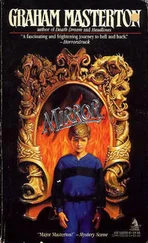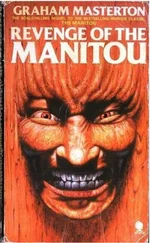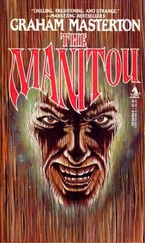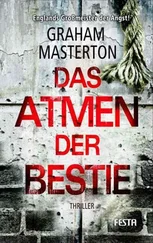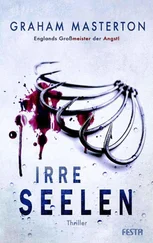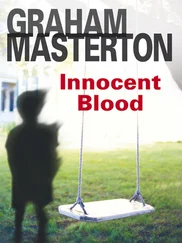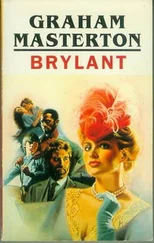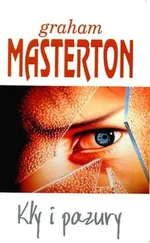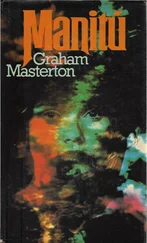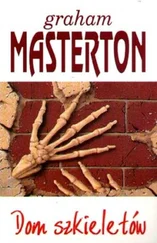“And they make sure that no Purgatorials come through the ‘six doors’, unless they want them to.”
“That’s right, guvnor.”
“Do they ever put people on trial?”
“Trial? You must be joking. Once they’ve got you, they’ve got you. They’re judge and jury, both, and nobody dares to cross them. They don’t even answer to Parliament. It was Oliver Cromwell who brought them together; and the saying is that Oliver Cromwell is the only man who can ever disband them, and he’s been dead for three hundred years. Hooded Men! Hooded Men!/Hide in cupboard, hide in bed/Old Noll will only pay them when/He sees them playing with your head.”
“So who appoints them? I mean, supposing I wanted to be one? Kind of an odd career move, I know, but supposing I did?”
“You couldn’t, you’re a tourist.”
“What’s wrong with being a tourist?”
“Too bloody high church, ain’t you? The Hoodies hate your lot.”
“I’m a tourist who tours around. A traveler.”
“Oh! In that case, beg your pardon, guvnor. Thought you meant you came from the Church of Tours. But I still don’t know what you’d have to do, to be a Hoodie. Maybe John will know.”
“Who’s John?”
“John Farbelow. You’re just about to make his acquaintance.”
“He’s your friend at the British Museum?”
“Um, ‘friend’ isn’t exactly the word that I’d use. Let’s say we dislike each other so much we almost enjoy it.”
* * *
They reached the basement of the British Museum by way of a narrow iron staircase in Montague Street. Simon knocked at a dark green door with a small window in it, and waited. At last a pale face appeared and stared at them for a while. Then the door opened a little way.
“I need a place to kip,” said Simon.
“Who’ve you got with you?”
“Omee and a donah. Couple of Purgatorials. The Hoodies were after them.”
“Hold on.”
They waited even longer. A blind man came tapping along the sidewalk next to them. He stopped quite close to the staircase, as if he were listening. Josh and Nancy and Simon stayed perfectly still, suppressing their breath.
“Somebody’s there,” said the blind man. “I can hear somebody alive down there.”
“No, mate,” said Simon. “We’re all deader than doornails.”
The blind man thought about that for a while, and then said, “God have mercy on your souls, then,” and went tapping on his way. Josh was uncomfortably reminded of Blind Pew, especially when three or four horses suddenly burst around the corner from Gower Street, dray horses, being run to their stables.
The basement door opened wider and they were admitted by an unsmiling girl with black curly hair. She looked partly Chinese, especially since she was wearing a plain black satin dress with a Mao collar. She was smoking a cigarette in an ebony holder. “How’s May, then?” Simon asked her, as she closed the door behind them. “What about a smile for your old mate Simon?”
The girl contemptuously turned her back and led them along a gloomy corridor stacked with wooden crates, her shoes tapping on the concrete floor. There was a strong smell of cleaning fluid and varnish, and something else. A bitter, herbal scent that put Josh in mind of something, but he couldn’t think what it was that he was trying to remember.
They reached another dark green door. The girl opened it up and led them through. They found themselves in a large windowless room filled with a fog of cigarette smoke. A motley collection of couches and chairs had been gathered together beneath a single naked light in the center of the room, and in these sprawled a number of pale young people, all of them overdressed in overcoats and embroidered vests and sweaters and scarves and baggy pants. Some of them wore hats and one or two of them wore knitted mittens, too. Josh got the picture immediately: these were the hippies of parallel London, the young rebels, the new Bohemians.
In the largest armchair with one leg slung over the side of it sat a big round-faced man with white hair that stuck up on top of his head like a king’s crown made of thistledown. He had probably been handsome once, but now he had bags under his eyes and his jowls had thickened. He was dressed in a black fur-lined coat of the type that used to be called an Immensikoff, and a gray three-piece suit, and a black silk cravat that had been tied to make an enormous bow the size of a dahlia.
“Well, well,” he said, coughing and lighting a cigarette. “Look what the cat’s dragged in. Haven’t seen you for a very decent interval, Cutter.” His voice was very deep and suave, like George Sanders with a head cold.
“Didn’t want to trouble you, guvnor,” said Simon. “But the Hoodies turned over my drum on the Gray’s Inn Road. San’s dead. You remember San. The Burmese geezer.”
“San? Of course I do. He was a good sort, San. Believed in something, unlike you.”
He looked past Simon to Josh and Nancy, and blew out a very long stream of smoke. “So who are these two? Purgatorials, are they? You’re punching above your weight, Cutter, mixing with Purgatorials. No wonder the Hoodies are after you.”
Josh stepped forward, into the light. “Josh Winward – and this is Nancy Andersen. You must be John Farbelow.”
“That’s right, Josh. Pleased to make your acquaintance. This is quite a novelty, meeting a pair of Purgatorials that Cutter and his ilk haven’t robbed and cobblestoned, or the Hoodies taken off for their own particular requirements.”
“Well, the fact of the matter is that we didn’t really come from Purgatory,” said Josh. “We came from London … only it’s kind of a different London.”
“Oh, I know that,” grinned John Farbelow. “Only children and idiots believe in the Purgatory story. You found one of the six doors; and you found out how to jump through it. People do, from time to time. Scholars, usually, who think they’re the first people who ever found out what the nursery rhyme referred to. Or people looking for somewhere to hide, because of something rascally they’ve done in that different London of yours. Which are you two then – scholars, or rascals?”
“Neither. We’re looking for the people who murdered my sister. We think she was strangled here and then taken back through one of the doors and her body dumped in the Thames.”
“Well, that kind of thing happens,” said John Farbelow, with a casual wave of his hand. “Unfortunately, you can’t legislate from one world into the other.”
“I still want to know who killed her.”
“You’re taking a very considerable risk, you know. The Hoodies won’t hesitate to do their worst with you, if they catch you. They’d do some nasty things to all of us here, if they ever caught us.”
“What’s their beef with you?”
John Farbelow sucked deeply at his cigarette, and then crushed it out. “You’ll forgive me, but I don’t know who you are, and I think I’ve already said more than it’s prudent to say.”
“They’re bona, guvnor,” put in Simon. “I can vouch for them myself. Up on the roof at Carey Street, they saved my bacon when the dogs were on me. They didn’t have to, and if I had been them, I would’ve let me drop, and scarpered.”
“I see,” said John Farbelow. “But how do I know that the Hoodies haven’t paid you to bring these two here? How do I know that San is really dead, and that you’re not just stringing me a line?”
“Because I’m the famous Simon Cutter, and everybody knows that the famous Simon Cutter would rather poke his eyes out with a pin than run errands for the Hoodies.”
There was a very long pause. Then John Farbelow took out another cigarette and said, “Your older brother, wasn’t it? Caught breaking into a television shop.”
Читать дальше

